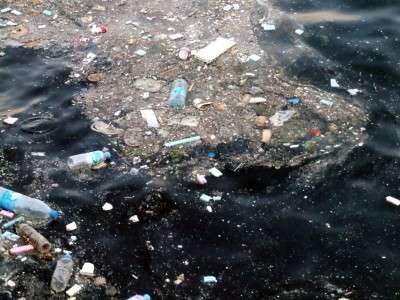A modern water conundrum

A project that unites civil engineering and the social sciences is showing how developing countries can benefit from tailored solutions rather than an unthinking uptake of advanced technology.
Faced with rising populations and rapid urbanisation, developing nations such as Vanuatu are often keen to acquire first-world water-management systems.
But that can mean buying into costly mistakes. The developed world has not necessarily "got it right".
Simply adopting first-world systems can also mean emulating the same costly cycles of trial and error involving unsustainable solutions, says Monash University's Professor Rebekah Brown, a program leader for Australia's Cooperative Research Centre (CRC) for Water Sensitive Cities and associate director of the Monash Water for Liveability Centre.
"Poor countries can look to rich countries and say 'we want what they have'. What they might not see are the significant environmental and economic impacts of these older systems, which have really only been recognised in the past 20 to 30 years," she says.
"In the so-called first world, many urban environments have highly degraded waterways and river systems. Yes, we have high availability of potable water, but we use a lot of energy to make that water very, very clean, and then we use it to flush toilets. This, in the long term, is not sustainable."
In an interdisciplinary PhD research project supervised by both Professor Brown and Monash civil engineer Professor Ana Deletic, environmental engineer Michael Poustie devised a proposal for drainage in Port Vila that took account of local priorities.
The plan is a hybrid of conventional pipes and pits, combined with grass swales and infiltration systems to slow and treat stormwater, and the use of composting toilets in districts that do not have access to improved wastewater systems.
It will be cheaper to build and operate, and more environmentally sustainable, than the previous proposal, lifted straight from a conventional developed-country model. It might have improved drainage for the city itself, but would have exacerbated coastal pollution and created serious headaches for the tourism on which the local economy relies.
"You can't just look at water infrastructure from a technical perspective. You have to incorporate the management, the institutions and the governance structures to enable water technologies to be implemented, used and maintained," Mr Poustie says.
Provided by Monash University


















